2021
10th November
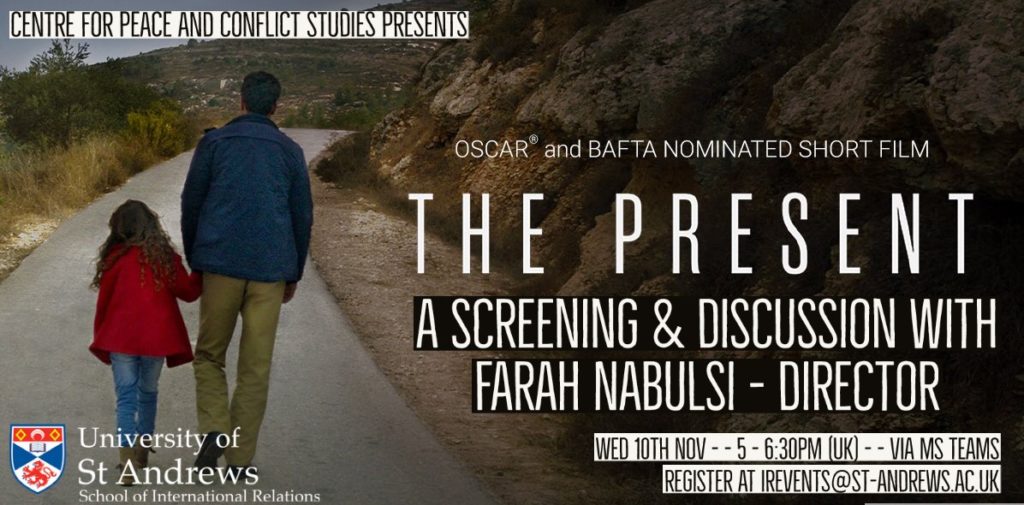
29th September
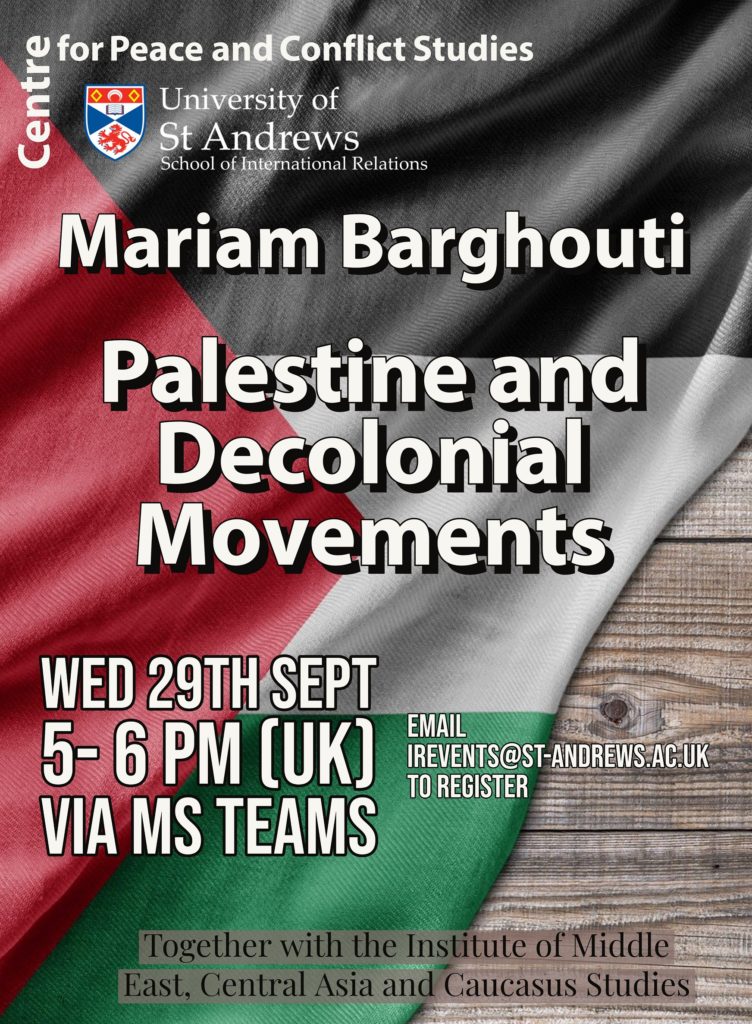
21st April
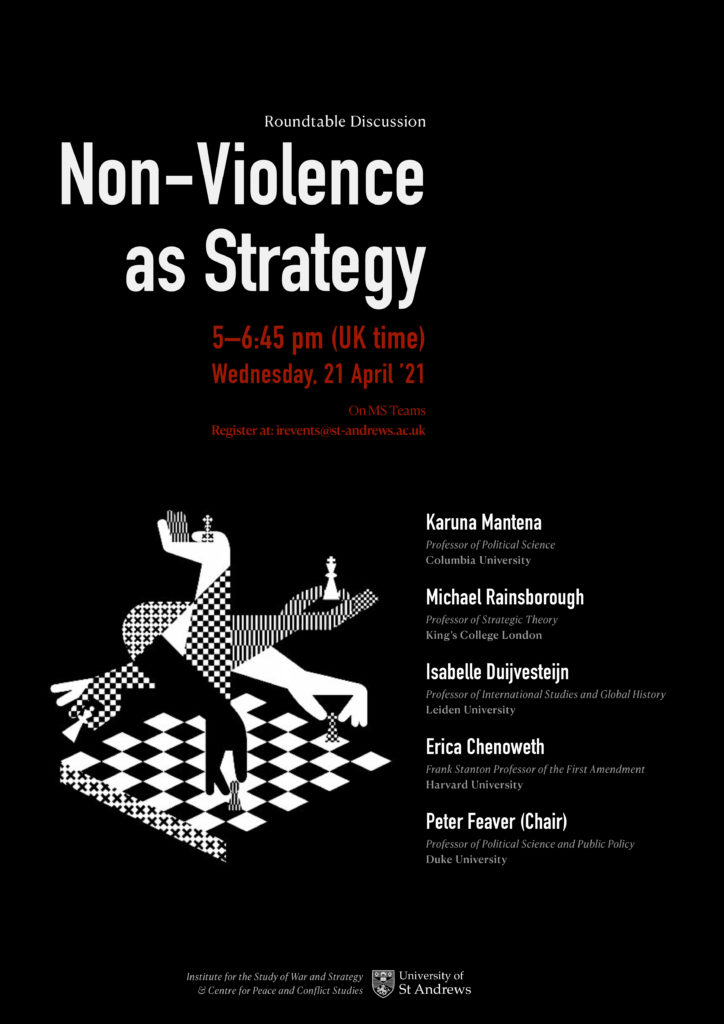
2020
October 28th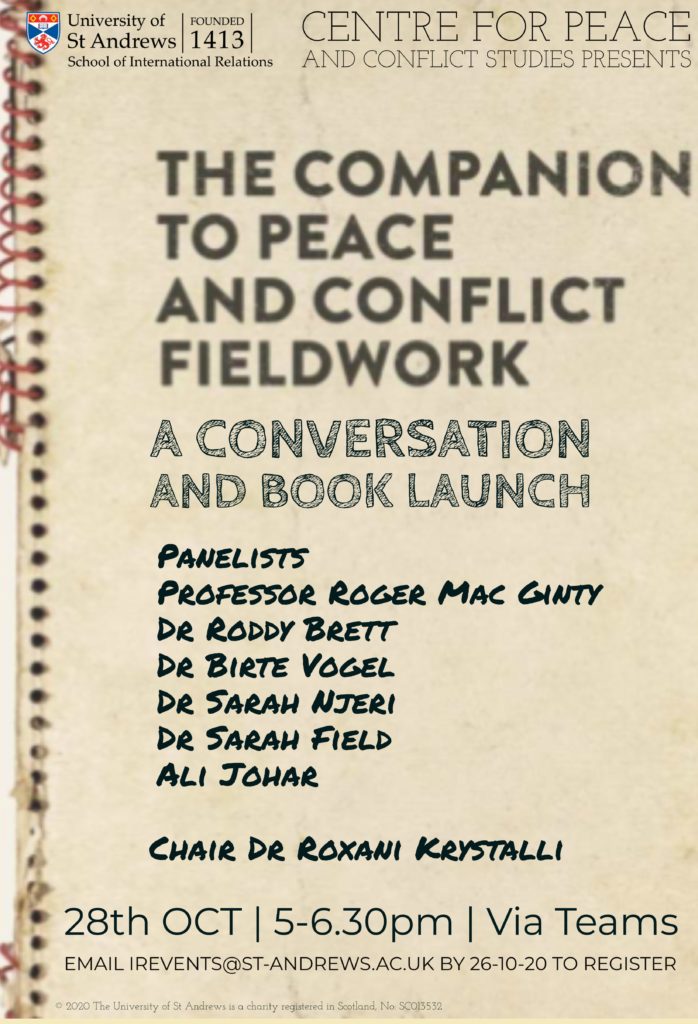
Professor Roger Mac Ginty University of Manchester
Dr Roddy Brett University of Bristol
Dr Birte Vogel University of Manchester
Chaired by: Dr Roxani Krystalli University of St Andrews
The Companion on Peace and Conflict Fieldwork: A conversation and book launch
Delivered via Microsoft Teams. See IR Events for further details
![]()
2019
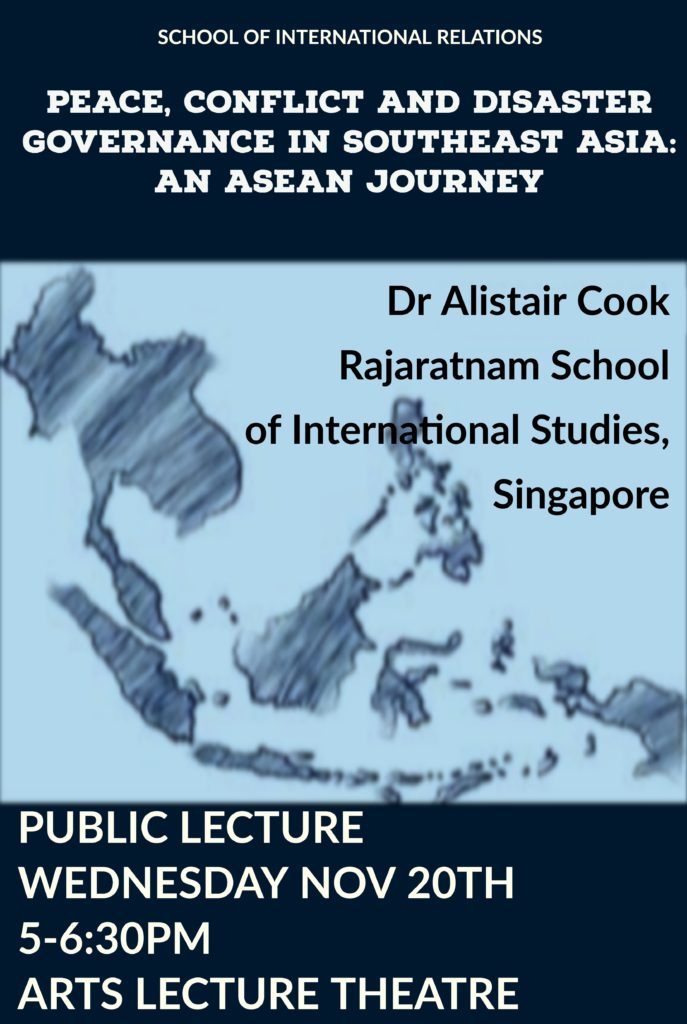
November 20th
Dr Alistair Cook Rajaratnam School of International Studies, Singapore
Peace, Conflict and Disaster Governance in Southeast Asia: An ASEAN Journey
Across Southeast Asia, states and societies have experienced human suffering as a result of conflict, disasters and a combination of both. This seminar maps and assesses the developments of both conflict and disaster management structures and processes within the regional organisation – ASEAN. It pays attention to the commitment made by regional states to develop a humanitarian assistance and disaster relief capacity in response to the 2004 Indian Ocean Tsunami and Earthquake. This commitment paved the way for the world’s first – and currently only – regional legally-binding disaster governance agreement signed in 2008. A decade ago, the Agreement on Disaster Management and Emergency Response laid the foundations for what has emerged as a functional cooperative mechanism to deliver humanitarian assistance through disaster management. This led to the establishment of the regional operational coordination centre – the AHA Centre – in 2011, which was put immediately to the test when Super Typhoon Haiyan made landfall in the Philippines. Subsequently the AHA Centre has coordinated response and developed institutional capacity at an impressive rate of expansion. Along with its successes came challenges and in 2017 ASEAN Member States mandated the AHA Centre with coordinating the regional humanitarian response to the Siege of Marawi in the Southern Philippines and to the Rohingya Exodus from Rakhine State in Myanmar. This seminar will also reflect upon these challenges and the state of regional mechanisms to govern not only humanitarian affairs but longer-term issues of peace and conflict.
November 6th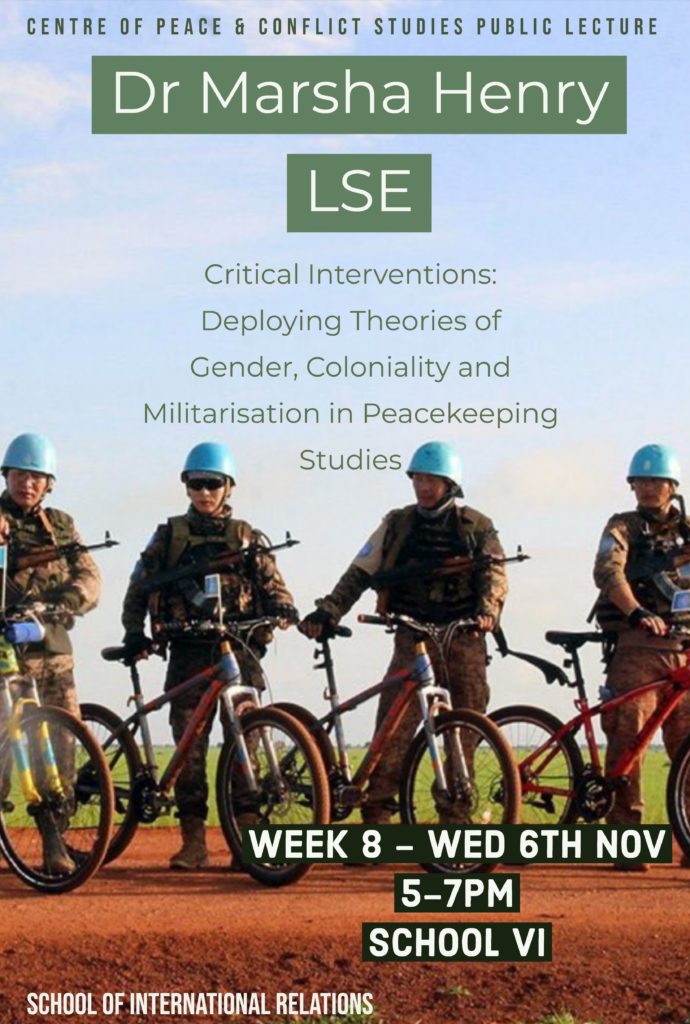
Dr Marsha Henry London School of Economics
Deploying Theories of Gender, Coloniality and Militarisation in Peacekeeping Studies
The lecture is concerned with reimagining peacekeeping, which starts with a return to critical theories and concepts in order to acknowledge the production of gendered, racial and classed inequalities in peacekeeping relations. In particular, critical concepts from gender theory such as standpoint and intersectionality, alongside postcolonial and critical race theories that include the colour line and the geopolitics of coloniality the lecture traces the dead-ends that arise when peacekeeping studies relies on policy and practice driven objectives, alone.
October 9th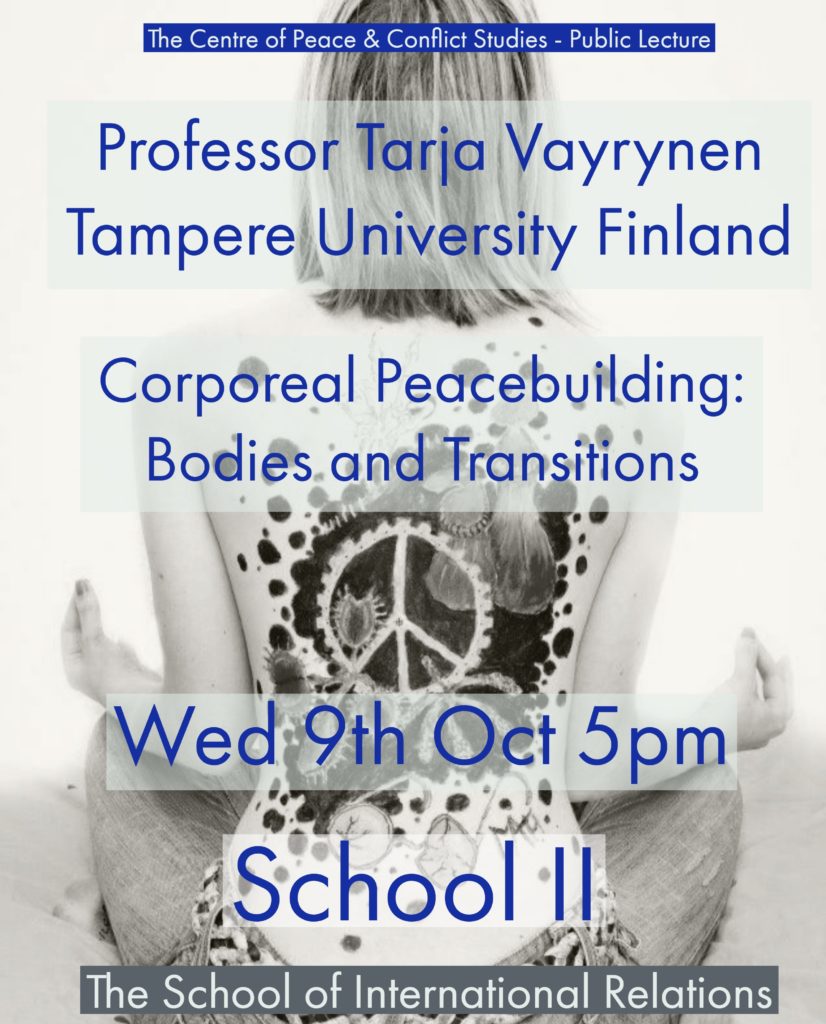
Prof Tarja Väyrynen Tampere University, Finland
Corporeal Peacebuilding: Bodies and Transitions
Over the last decade peacebuilding has been in crises. This talk presents a blend of theoretical and empirical analysis how the body is constitutive of war and peace. It attends to witnessing, wounded, remembering, silenced and resistant bodies and argues that peacebuilding practices as well as Peace and Conflict Studies often dismiss this corporeal and mundane domain which is, however, instrumental to peace. The lecture offers an engagement with peace and conflict theory as well as with feminist social and political theory.
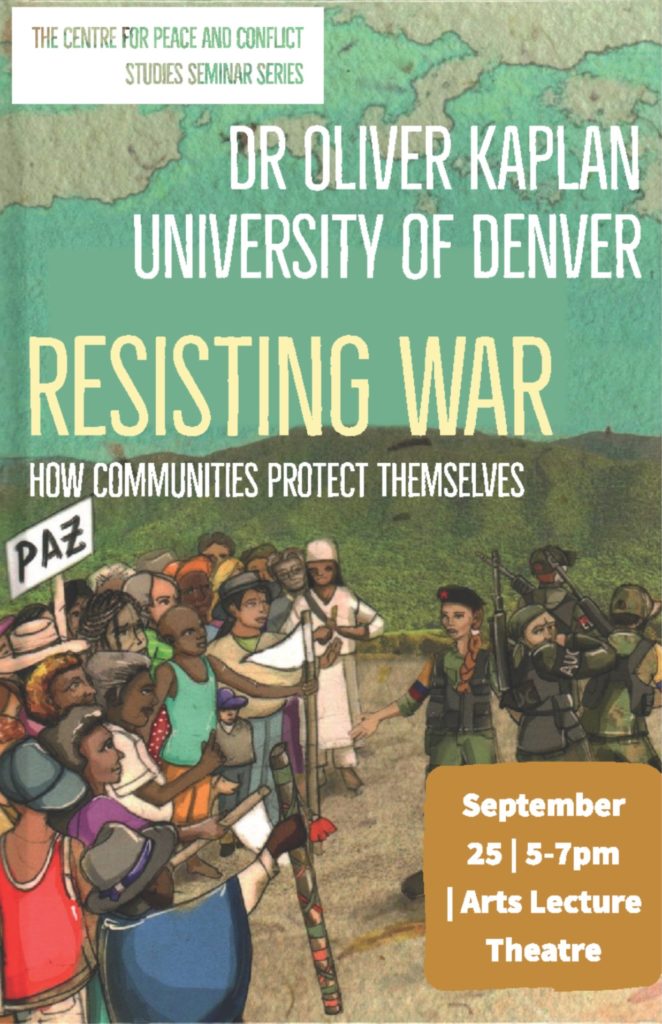 September 25th
September 25th
Dr Oliver Kaplan University of Denver
Resisting War: How Communities Protect Themselves
Oliver will be giving a talk on his very fascinating book, Resisting War: How Communities Protect Themselves (Cambridge University Press). Resisting War focuses particularly on Oliver’s extensive and mixed methods research in Colombia and also develops cross-comparative insights from Afghanistan, Pakistan, Syria, and the Philippines “to show how and why civilians influence armed actors and limit violence”.